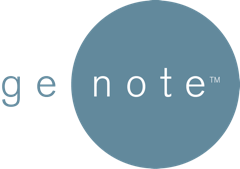
THE GENOTE BLOG
Inspiring, creating and living Health Music
CHRISTMAS MUSIC IS MENTAL
You might have wondered why, during the holiday season, we are all forced to walk through various shopping areas while accompanied by Christmas tunes. Some of us, maybe lots of us, grow quite tired of listening to the same tune over and over. Some of us like the warmth of Bing Crosby and Judy Garland tunes, others like Kenny G, or the latest renditions of Il Divo, Josh Grobam, and Mariah Carrey. There are a lot of us who prefer the great performances of King Singers or Mormon Tabernacle Choir too. More precisely, we all tend to have a specific favorite version for each tune. Each tune, heard at the wrong time (and in the wrong way) can definitely rub us the wrong way and make us irritable, distant, and even depressed. The idea of having a favorite version of Christmas tunes that we find closer to our idea of home, family or music perfection is something worth pondering about. Certainly each song carries strong memories, sometimes even a specific tradition that we, in our families, have developed and wish to maintain.
But there is a deeper meaning attached to our preferences: we have developed music likes and dislikes not only for the way the tunes make us feel, but the way that such favorites are built. Many of us tend to dislike if not even feel offended by modern versions of our favorite holiday tunes if such versions do not follow the original musical structure. Many of us tend to like songs in their most simple version, with the original voice, and the original orchestration. We are certainly bothered if anyone attempts to tamper with the rhythm, the tempo, the key signature and the qualities of the Voice. That is simply because our wonderful ability to understand, listen and even discern music elements is linked to specific correlations between music structural elements and brain functions. We would suggest to pick very carefully your best holiday music by thinking about how the music can make you. Ponder about the memories that it triggers and watch any change in your mood. If you spend some time on this, not only you might end up with a more joyful experience, but you will probably make your days even more blissful with happy and thankful people around you. Listen to the great songs in the LINK and find your own favorites.
The birth of Genote corresponds to a concert performed by choirs, orchestra and soloist in Venice, on January 6th 2013.
After the School supplies, now what?
Genote offers your family Health Music™
Genote is the first clinically tested online streaming music platform. By signing up, you’ll get streaming access to our Health Music library. Developed with pediatric researchers around the world. Just select the area of well being you’d like to target and play high quality music on any device, anytime, anywhere.
You bought your school supplies, your bags are stuffed with new pens, colorful pencils, notebooks; you have your phones, your computer, your quick meals and so much more.
Yet, for at least few weeks, if not months, you will deal with one issue alone: sleep deprivation.
Surely it can be challenging to deal with classmates, teachers, routines, and demands, yet, the biggest challenge will be how to rest, quickly recover from the sudden change in habits, and set for a successful beginning of the school year.
The Struggle is Real
It can take kids over a month to realign their sleep schedule so that they perform their best in school. Some kids take even longer than that. The fall is a stressful period of the year, as parents struggle with re-aligning their children’s sleep schedules, cutting summer junk food, and helping kids focus on studying again. You can manage the transition with supportive tools to set your family up for success.
As children wind down from the excitement of summer vacations, barbeques, late nights and unstructured schedules, many return to school with increased anxiety. Parents often have to deal with nervous children who can be restless, grouchy, and even depressed for the first weeks of the new school year.
There have been many tricks and tips proposed for preparing kids for back-to-school anxiety, but here’s a new idea that may be one of the easiest to apply: music. Yes, music – long known to have positive affects on emotions – is finding more credence in the medical community for therapeutic care in kids of all ages. New studies suggest that “Health Music” can help children’s overall wellbeing by addressing stress, focus and sleep.
The findings come from a new company, Genote, dedicated to studying the benefits of music on better health. What kind of results are they seeing with children going back to school? “They just won’t go to sleep because they’re so excited about everything,” says Angela Duncan, a mother of five children from South Jordan, UT. “The new clothes, the new friends, the concerns about if they’ll like their teacher – it’s all very stimulating for them. But their ability to focus and learn really suffers.” Duncan is using Genote’s Health Music Albums with her children in 3rd grade, 2nd grade and Kindergarten and has seen positive results with the Health Music. “Going to sleep on time has been the biggest change,” she says. “We play the music while they’re getting ready for bed and falling asleep and it really calms them. If they can get to sleep on time, they’re able to get up early, concentrate on the day ahead of them, and they’ve done much better at school because of it.”
Designed by decoding the “DNA of music” and applying it to clinical/medical situations, Genote’s Music Intelligence Technology™ was developed in collaboration with experts in neuroscience, psychology, neonatology, geriatrics, sports medicine, and, of course, music. Genote has developed an algorithm that combines elements of various music compositions to produce therapeutic value for the listener.
"When it comes to music therapy, other solutions simply mask background noise. Many non-scientific solutions do nothing to prepare the brain and the body for improvement," said Edoardo Guerra, Chief Scientific Officer at Genote. "We designed Genote as a new system that can analyze music literature and apply the correct choice of music stimuli for those that want to improve the quality of their health.” Guerra and Genote founder Massimiliano Frani have worked with conditions of sleep deprivation, dementia, autism and even athletic recovery. They’re especially excited to see the positive changes in children.
Genote is the leading health music program that scientifically triggers positive functions in the brain and the body of all ages. The Genote Music Intelligence Technology™ is developed from the latest findings in many fields of medicine, music and wellness. Music albums are available at Genotelab.com. Genote is headquartered in Salt Lake City, Utah. For more information, please visit www.GenoteLab.com.
Adolescents struggling for life
I pretty much fell in love with Genote on the first Sundown session that I attended. I felt in sync with my emotions, they were truly mixed and molded in to who I was in that moment.
Recently, during a Genote initiative, I worked with struggling adolescents who are trying to develop skills to cope with gravely serious challenges. I wanted to create a team that could work together and share meaningful insights about themselves and their surroundings. I wanted them to share beauty and be persuaded to be real actors in their personal path to happiness.
Mental issues, emotional challenges and interpersonal relationships seem to be ever-increasing for the adult community and young generations. Approximately 1 out of 5 adolescents aged 13–18 (21.4%) experience a severe mental disorder at some point during their life. For children aged 8–15, the estimate is 13%. (1) More drastically, in 2015, statistics on adolescents and young adults aged 15-24 indicate a suicide rate of 12.5%. (2)
When the activities began, the group was rather small with new participants every week and with an inconsistent number of students. Some of them were excited to be there, and others were really tired and stressed out. One day, after some light conversation, we began the activity by trying to dig a bit deeper and getting to know them better. We asked them to share something about themselves, possibly something they had never shared before.
Some of them shared a few personal details, some spoke rather mindlessly, but, generally, we all felt that no one had decided to bring the conversation to a deeper level. While working with adolescents we try to maintain a consistent focus, help them recognize the superfluous in conversations and help them become more open to healthier relationships.
One day, we asked them to lay down and listen to the music we had prepared. Three compositions, with three different and carefully chosen emotional connotations and complexities. After 20 minutes of listening, we resumed the conversation by asking them to describe their experience, feelings and thoughts. This is when something special happened!
“I pretty much fell in love with Genote on the first Sundown session that I attended.
I’ve always greatly valued music and appreciation of art, and then being in a place of constant noise and stress (I would say) a time of quiet and isolation of music and art was very much needed.
Some sessions I really was entranced by the music and was able to devote my undivided attention to it, on other days especially days that I feel spaced out, acting as if I’m on autopilot I wouldn’t be able to concentrate on the music at all. It was just another hour that passed by my eyes. On the days that I was capable of absorbing myself into the music, I felt refreshed and was able to convert my newfound energy to the next few hours of the day.
My last Sundown session was an experience separate to the rest of the sessions.
I felt the singing and the music resonate through my body as I exhaled a deep sigh of dread for the upcoming separation. I felt in sync with my emotions, they were truly mixed and molded in to who I was in that moment. The separation between me and my friends/peers of elevations, my separation of all the unique experiences that I have been having whether it’s Genote or volleyball or groups. It was a hard separation, one filled with sadness, longing, and also excitement and hope.
That pretty much sums up my experience with Genote, hopefully this helps in one way or the other.
”
The general behavior changed, and the level of each student’s willingness to share their personal feelings and story increased considerably. The level of comfort created during the session, allowed them to listen to each other, find helpful insights and build meaningful memories. The quality of personal interchange increased; over the following months, the Genote Sundown sessions helped them discern trustworthy relationships and determine important building blocks for their character and for the future.
We studied music for a long time; over the last 30 years, music's applications in clinical settings have increased significantly, and we are amazed by music’s capacity not only to influence our emotions and biological parameters, but to push us to be better people and help us build great memories as a way to nurture great qualities within ourselves. We are continuously recording each new session and continue to update Genote Health Music. We see great potential. We see hope and growth, and that is what we work for.
Any Disorder Among Children. (n.d.) Retrieved January 16, 2015, from http://www.nimh.nih.gov/health/statistics/prevalence/any-disorder-among-children.shtml
Centers for Disease Control and Prevention (CDC) Data & Statistics Fatal Injury Report for 2015.
NAMI - National Alliace on Mental Illness http://www.nami.org/Learn-More/Mental-Health-By-the-Numbers#sthash.FgWBgscB.dpuf
Music for Depression
"6 months have passed by and the program has progressed past it’s first stages; For me, and now many others, every week I spend in Genote has been more than beneficial." - Sam
Since 2003, Genote has been focused on developing Health Music protocols for the mental health arena. Initially, we wanted a chance to assist the therapeutic process by creating a mentorship-like relationship between a music experience and a patient. After 2012, Genote identified a few pivotal, working elements in the therapeutic cycle: problems such as insomnia, depression, anxiety, and lack of concentration, rigid thinking and distress tolerance. These mental health issues are now considered crucial in building healthy lifestyles, and professionals seek to offer appropriate developmental tools to people of all ages.
It is rewarding is to see how Health Music protocols are being applied for adolescents at risk, in dire conditions and even desperate stages of their lives.
Based on the Music Education Therapy method (MET), through Genote technology, we created a Music Mentorship Program to support and increase therapeutic objectives, educational experiences and health targets. We combined Genote Health Music (for Sleep, Anxiety, Focus, Rigid Thinking and Distress Tolerance) with group sessions called “Sundown”. The Music Mentorship program helps young people in clinical environments and diverse clinical settings while they struggle with different aspects of mental health.
Clinical settings, even lock-down facilities, require a tailored, differentiated implementation according to each institution’s specific goals, environment and workload.
Genote has been successfully applied and evaluated in NICUs, professional sport teams, wellness programs, and alzheimer treatment clinics. We’d like to take this opportunity to share some first hand accounts of how individuals have found personal benefits through Genote Health Music.
We feel fortunate to get the chance to help youth in Residential Treatment Centers. One of your partner organizations, Elevations RTC, has implemented a variety of Genote programs and tackled different psychological and mental health issues. While working with their resident therapists and psychologists to equip students with personalized access to the Genote Library, students and staff participate in individual sessions, group sessions and other initiatives. More and more students are using the program as they witness positive experiences from their peers. The students decide to sign up, experience Genote, and move forward all on their own initiative.
Here is one student’s description of his experience.
“The Genote Project that I have experienced began as a trial project with 5 other kids in the back of a library listening to and discussing classical music. Since then, 6 months have passed by and the program has progressed past it’s first stages; For me, and now many others, every week I spend in Genote has been more than beneficial. The relationship we have developed with the Genote Team has become therapeutic and deep. The trust that has been the foundation of their work has allowed the bond we have created to flourish. The wisdom they share and the time they have spent has not only improved our knowledge and understanding of music, but our knowledge and understanding of healthy living. I’m thankful for what they have done and excited to see where their program goes.”









